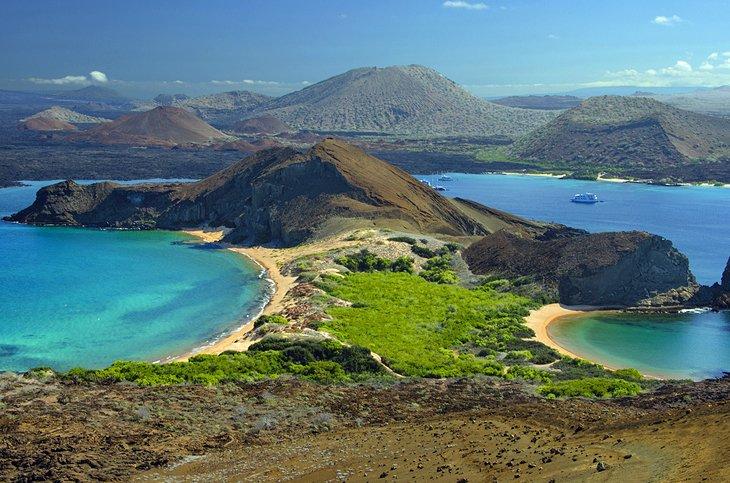As international travel gradually resumes, Ecuador emerges as a vibrant destination offering rich cultural heritage, diverse landscapes, and bustling cities. However, prospective visitors are urged to stay informed about the latest travel advice and safety guidelines issued by Smartraveller, Australia’s official travel advisory platform. This article provides an up-to-date overview of essential tips, potential risks, and practical recommendations to help travelers navigate Ecuador’s dynamic environment with confidence and security.
Ecuador’s Health Precautions and Medical Facilities to Know Before You Go
Before embarking on your Ecuadorian adventure, it’s crucial to consider specific health measures to safeguard your well-being. Vaccinations for Yellow Fever, Hepatitis A and B, and Typhoid are strongly recommended, especially if you plan to visit the Amazon region or rural areas. Additionally, mosquito-borne illnesses such as Dengue, Zika, and Chikungunya are prevalent in certain parts of the country, making the use of insect repellent, long sleeves, and mosquito nets essential. Travelers should also take precautions regarding food and water hygiene to avoid common gastrointestinal illnesses; always opt for bottled water and well-cooked meals.
Ecuador’s healthcare infrastructure varies significantly between urban centers and remote locations. Major cities like Quito and Guayaquil offer modern hospitals and clinics equipped with English-speaking staff and advanced medical technologies. However, in rural or highland areas, medical facilities are limited and may lack essential supplies. For urgent medical needs, international travelers should ensure they have comprehensive travel insurance that covers medical evacuation. Here’s a snapshot of healthcare availability across different zones:
| Region | Facility Type | Emergency Services | English Support |
|---|---|---|---|
| Quito & Guayaquil | Modern Hospitals & Clinics | 24/7 | Widely Available |
| Coastal Towns | Local Clinics, Some Hospitals | Limited | Occasional |
| Amazon & Highlands | Basic Health Posts | Rare | Minimal |
Navigating Security Challenges in Ecuador’s Major Cities
Travelers to Ecuador’s bustling urban centers should exercise heightened awareness, as petty crime such as pickpocketing and bag-snatching remains prevalent, especially in crowded markets and public transportation hubs. It is advisable to avoid displaying valuables openly and to remain vigilant when navigating busy streets after dark. While most visits are trouble-free, reports indicate an uptick in opportunistic thefts targeting tourists unfamiliar with local nuances. Utilizing registered taxi services over hailing cabs directly and steering clear of poorly-lit or isolated areas significantly reduce risk.
Public safety officials have intensified patrols in major cities, but visitors must still take personal precautions. Local authorities recommend these strategies to enhance safety during urban exploration:
- Keep copies of important documents such as passports and emergency contacts in secure locations.
- Use hotel safes for storing valuables rather than carrying them around.
- Avoid withdrawing large sums of cash from ATMs, especially at night.
- Stay informed about neighborhood safety by consulting locals or reputable information sources.
| City | Common Security Concerns | Recommended Precautions |
|---|---|---|
| Quito | Pickpocketing in Old Town | Avoid crowds, use official taxis |
| Guayaquil | Bag-snatching near bus terminals | Secure belongings, avoid isolated areas |
| Cuenca | Night-time street robberies | Stay on well-lit routes, travel in groups |
Essential Cultural Etiquette and Local Laws for Travelers
Respect for local customs is highly valued in Ecuador, where traditional values influence daily interactions. Visitors should greet locals with a warm handshake or a gentle cheek kiss when appropriate. It is important to dress modestly, particularly when visiting religious sites, and to avoid overt displays of affection in public places. Ecuadorians appreciate polite behavior; speaking softly and refraining from aggressive gestures will ensure positive engagement. Additionally, tipping is customary but not obligatory; a 10% gratuity in restaurants is generally well received.
Understanding the legal framework is crucial to avoid inadvertent issues. Consumption of alcohol and tobacco is restricted to individuals over 18 years old, with enforcement strict in public spaces. Drug laws are stringent: possession or trafficking of illegal substances carries harsh penalties, including lengthy imprisonment. Traffic regulations mandate seat belt use at all times, and while driving, pedestrians have the right of way. Below is a quick reference to key legal points for travelers:
| Category | Key Points |
|---|---|
| Age Restrictions | 18+ for alcohol and tobacco |
| Drug Laws | Zero tolerance, severe penalties |
| Traffic | Seat belts mandatory; pedestrians have priority |
Closing Remarks
In summary, while Ecuador offers a wealth of cultural and natural attractions, travelers are advised to remain vigilant and well-informed to ensure a safe visit. According to Smartraveller, staying aware of local conditions, adhering to common safety precautions, and respecting regional guidelines can significantly reduce risks. As the situation can evolve rapidly, consulting updated travel advisories before and during your trip is essential. By combining careful planning with an appreciation of Ecuador’s diverse environment, visitors can experience the country’s rich heritage with confidence and peace of mind.




